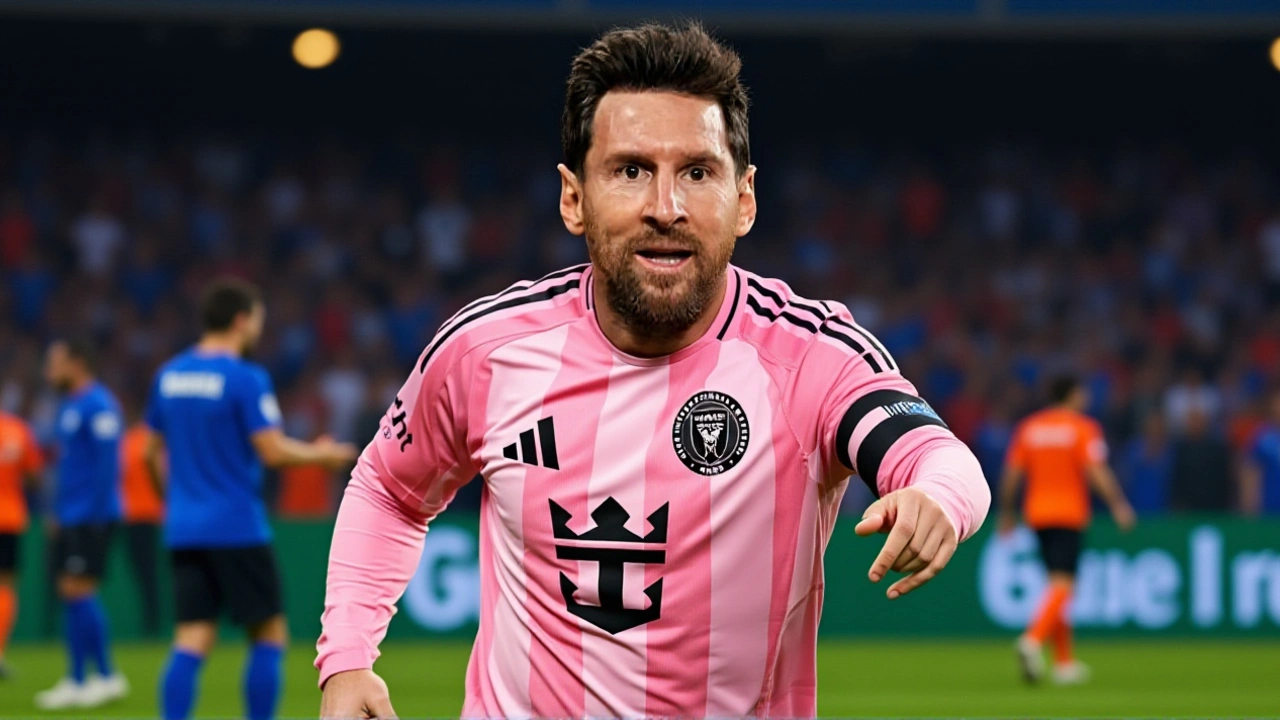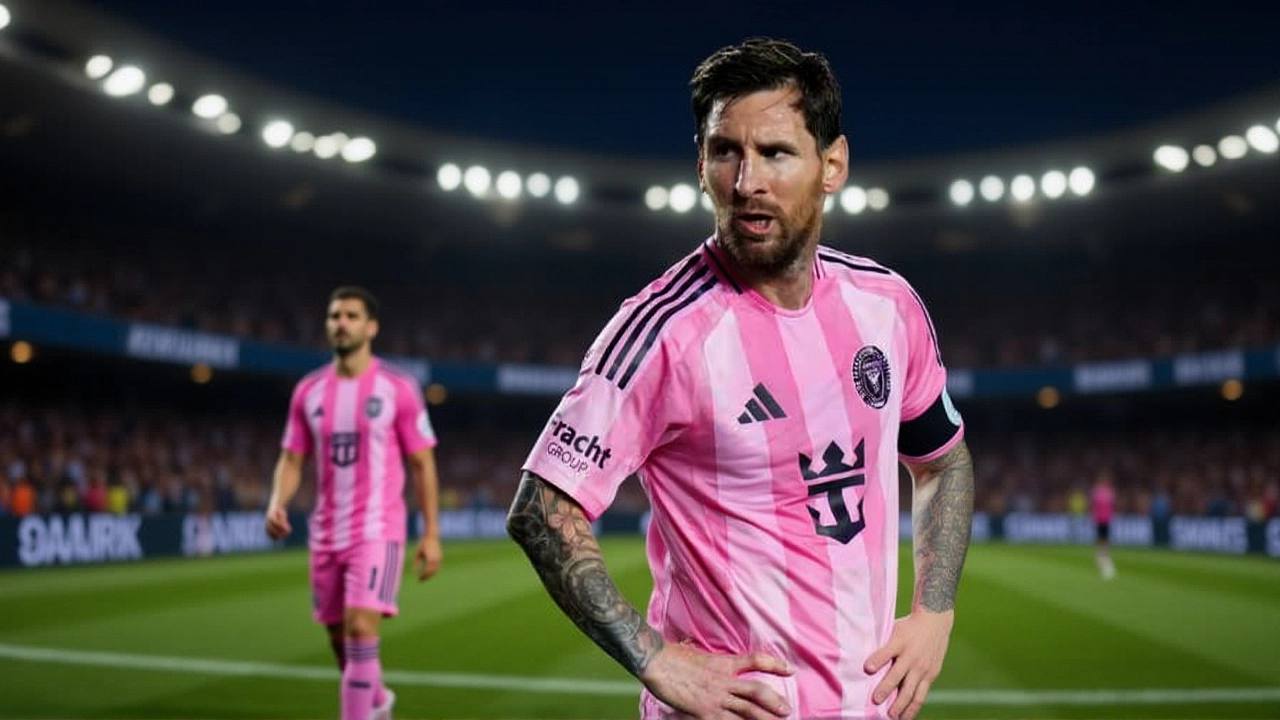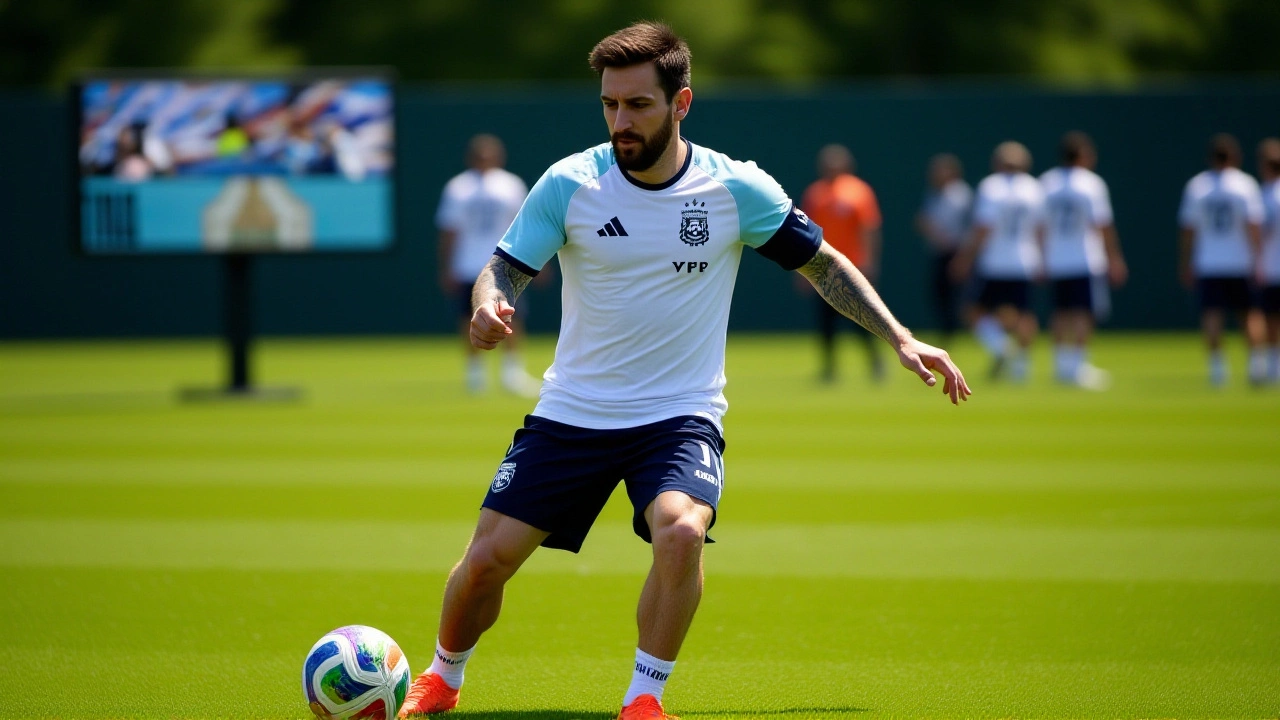On a chilly Sunday night in Cincinnati, Lionel Messi didn’t just play football—he rewrote history. The 38-year-old Argentine legend scored one goal and added three assists in Inter Miami’s 4-0 demolition of FC Cincinnati at TQL Stadium on November 23, 2025, becoming the first player in Major League Soccer history to record 12 goal contributions in a single postseason. With that performance, Messi didn’t just carry Inter Miami to their first-ever Eastern Conference Final—he turned a playoff run into a coronation.
Historic Night in Cincinnati
It started with a header—low, bouncing, impossible to stop. In the 32nd minute, Messi rose above a crowded penalty area and guided a cross from 19-year-old Mateo Silvetti past Roman Celentano, FC Cincinnati’s 24-year-old goalkeeper. The goal was quiet, almost clinical. No celebration. No theatrics. Just pure, cold efficiency. Then came the assists. Three of them. Each more devastating than the last. A no-look pass to Silvetti for the second goal. A diagonal through-ball that split two defenders for the third. And finally, a free kick that curled into the top corner after a clever dummy from Sergio Busquets Burgos. All in the second half. All without breaking a sweat.
By the final whistle, Messi had become the first player in MLS history to be directly involved in every goal of a playoff match. His postseason tally now stands at 6 goals and 6 assists—surpassing the previous record of 11 set by Carlos Vela in 2019. And it wasn’t even his best game of the playoffs. That came two weeks earlier against Nashville SC, when he dropped five goals and three assists in a single match. The numbers are almost absurd: 29 goals and 19 assists in the regular season, plus 6 goals and 6 assists in the playoffs. That’s 59 total goal contributions in 2025—a new MLS single-season record, eclipsing his own 50 from last year.
Behind the Scenes: Tactical Gamble Pays Off
Inter Miami’s manager, Javier Alejandro Mascherano, made a bold call before kickoff: bench the legendary Luis Alberto Suárez Díaz, who had just returned from suspension, and start Silvetti instead. It was a risk. Suárez, 38, is a proven finisher. Silvetti, 19, had started just three games all season. But Mascherano saw something else: pace, movement, chemistry with Messi. The gamble paid off. Silvetti assisted Messi’s opener and scored the second goal himself with a stunning curler from the edge of the box. "He’s not just a kid," Mascherano said afterward. "He’s a player who understands where Messi will be before Messi even decides to move."
Meanwhile, the veteran spine of Inter Miami—Busquets, Jordi Alba Ramos, and Messi—played like men who knew this might be their last ride. Both Busquets and Alba, 36, have announced their retirement at season’s end. This wasn’t just a playoff win. It was a farewell tour with a championship pulse.

What’s Next? The Road to MLS Cup
Inter Miami now faces either the Philadelphia Union or New York City FC in the Eastern Conference Final on November 29, 2025. Hosting rights hinge on Supporters’ Shield points: Inter Miami finished the regular season with 78, second only to Philadelphia’s 82. If the Union win their semifinal, they host. If NYCFC wins, Inter Miami gets the home-field advantage at Chase Stadium in Fort Lauderdale.
And if Inter Miami wins that? They host the MLS Cup presented by AudiChase Stadium on December 6, 2025. That’s right—the first MLS Cup final in club history, in their own backyard. They’ve reached the Concacaf Champions Cup semis, the Leagues Cup final, even the FIFA Club World Cup knockout stage in 2025. But this? This is the one that matters.
Why This Matters Beyond the Scoreline
This isn’t just about Messi. It’s about what he’s done for American soccer. Before he arrived in 2023, Inter Miami was a footnote. Now, they’re a force. Ticket sales jumped 300% in his first season. Merchandise revenue hit $180 million in 2025. The league’s TV ratings? Up 42% during his matches. Even critics who dismissed MLS as a retirement league are now watching. And the ripple effect? Young players across the U.S. are choosing soccer over basketball or football—not because of Nike ads, but because they want to be the next kid who plays with Messi.
And then there’s the record. That 59-goal contribution mark? It’s not just a number. It’s a statement. In a league often criticized for lacking elite talent, Messi didn’t just compete—he dominated. He didn’t just score—he orchestrated. He didn’t just play—he elevated an entire league.
FC Cincinnati, meanwhile, is left to digest a brutal defeat. Their 27-year-old midfielder Evander da Silva Ferreira and the rest of the squad now face a long offseason to process what might have been. The team had the best home record in MLS this year. They were 15-1-3 at TQL Stadium. But against Messi? Even the best defenses crumble.

Behind the Numbers: The Messi Effect in 2025
- 59 total goal contributions (29 goals, 30 assists) in 2025—MLS single-season record
- 12 goal contributions in the 2025 playoffs—new MLS postseason record
- First player to make consecutive MLS Best XI selections (2024, 2025)
- On pace to become first back-to-back winner of the Landon Donovan MVP Award
- Inter Miami’s first-ever appearance in an MLS Conference Final
Frequently Asked Questions
How does Messi’s 59-goal contribution record compare to other leagues?
Messi’s 59 goal contributions in 2025 surpass even his own 2012-13 Barcelona season (73 total goals and assists, but in 55 games), and outpace Cristiano Ronaldo’s 57 in 2014-15 for Real Madrid. In MLS, the previous record was 50, also held by Messi in 2024. No other player in MLS history has reached 50 in a single season. The closest challenger, Carlos Vela, had 42 in 2019.
Who holds the previous MLS playoff record, and how did Messi break it?
Before Messi, Carlos Vela held the single-postseason record with 11 goal contributions (8 goals, 3 assists) in 2019. Messi tied that in the first round against Nashville SC, then added 6 more in the semifinal against FC Cincinnati. He became the first player to record 6 assists in a single playoff run, and his 6 goals are the most by any player in a single postseason since 2007.
Why did Mascherano bench Suárez? Was it just about Silvetti?
It wasn’t just about Silvetti’s pace—it was about spacing. Suárez is a classic number 9 who holds up the ball. But Messi thrives with runners cutting behind defenders. Silvetti’s movement created lanes Messi could exploit with through balls. Mascherano knew Suárez would still come off the bench if needed. The decision wasn’t about age—it was about tactical alignment. And it worked perfectly.
What’s the significance of Inter Miami hosting the MLS Cup final?
Hosting the final would be historic. No MLS team has ever won the Cup at home after finishing second in the Supporters’ Shield. Plus, Chase Stadium holds just 18,000—smaller than most MLS venues. But the atmosphere? Electric. With Messi on the pitch, the stadium will be sold out for weeks. A home win would cement his legacy in the U.S. and likely trigger a wave of global investment in MLS franchises.
Is this Messi’s last chance at an MLS title?
He’s 38, and both Busquets and Alba are retiring. Even if Messi re-signs, his physical decline is inevitable. The 2025 season was his peak in MLS—his most complete, most influential year. If Inter Miami doesn’t win the Cup now, it’s unlikely they’ll get another shot with this core. The window is closing. Fast.
What’s the connection between Messi and Ferenc Puskás?
World Soccer Talk mentioned Messi tied a record held by Puskás, but didn’t specify which. Historical context suggests it’s likely the record for most goals in a calendar year for a player over 37. Puskás scored 31 goals for Real Madrid in 1960 at age 33—far younger than Messi. The real link? Both were attacking midfielders who elevated their entire teams. Messi’s 2025 season mirrors Puskás’s 1958-60 peak: dominance, elegance, and legacy-defining impact.
